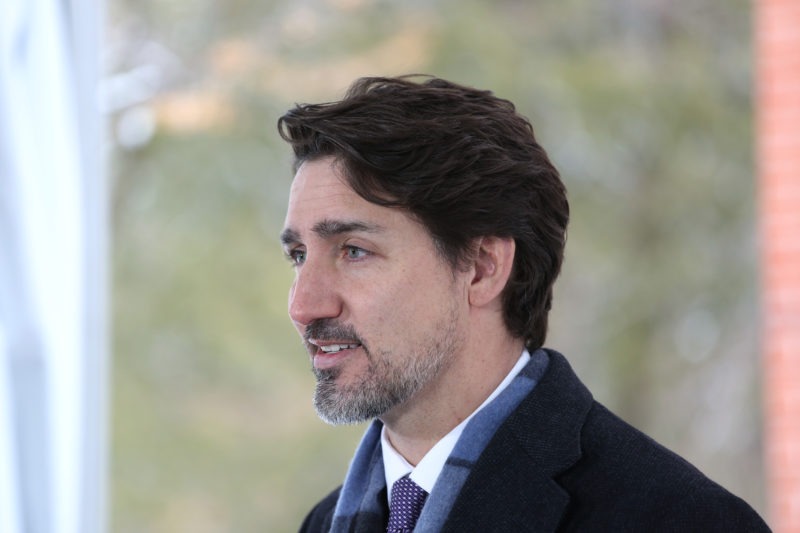Trudeau objects to US posting troops to control border with Canada
Canadian Prime Minister Justin Trudeau (Dave Chan)
Ottawa (AFP) – Canada opposes the United States sending troops to its northern frontier to catch border jumpers who may be carrying the COVID-19 virus, Prime Minister Justin Trudeau said Thursday.
The prime minister was commenting on a report by Global News that said White House officials are discussing such a military deployment to help spot anyone trying to cross the recently closed border, the world’s longest at 8,900 kilometers (5,500 miles).
It was temporarily shut as of Saturday to all non-essential travellers on both sides, but not cross-border trade.
“Canada and the United States have the longest unmilitarized border in the world. And it is very much in both of our interests for it to remain that way. We have been in discussions with the United States on this,” Trudeau told a daily briefing.
He said his administration has highlighted that the flow of people and trade across the 49th parallel “has benefited our two countries and our economies tremendously. And we feel that it needs to remain that way.”
An estimated 400,000 people and $2 billion worth of goods normally would cross the border each day. That has obviously dropped off since travel restrictions were put in place to slow the spread of the new coronavirus.
Global News said less than 1,000 American troops would be stationed within 30 kilometers (20 miles) of the Canadian frontier, between official border checkpoints, and use sensor technologies to detect irregular crossers.
Under this proposal, the US military — which shares continental defense responsibilities with their Canadian counterparts — would advise American border agents who would be sent to intercept them.
At a news conference, Deputy Prime Minister Chrystia Freeland said Ottawa “forcefully” pushed back against the proposal, noting that the two nations are “very close military allies,” including partners in NORAD and NATO.
She also pointed to the recently conclude US Mexico Canada free trade pact, and the agreement on border restrictions as evidence the two countries can work well together.
“In view of all of these connections and the importance of the (bilateral) relationship, Canada is strongly opposed to this US proposal,” she said.
Disclaimer: Validity of the above story is for 7 Days from original date of publishing. Source: AFP.


